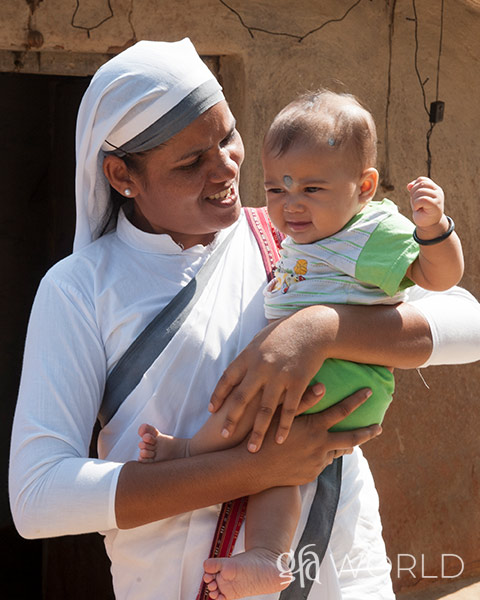
Parts of Asia are home to some of the world’s poorest individuals, as well as some of the world’s most challenging living conditions, making Gospel for Asia (GFA) Sisters of Compassion’s work invaluable to those who need it most.
The Sisters of Compassion are specifically trained to serve the most impoverished people groups in their regions. Some of the individuals they work with have little to no access to medical care, while facing various health challenges.
The majority of this regions citizens face underprivileged housing conditions, unclean drinking water, poor sanitation, pollution from heavy biomass fuel use and exposure to harsh environmental conditions—all of which increase the need for medical care.[1]
To make these individuals’ situation even more difficult, statistics from the Central Bureau of Health Intelligence state that over 75 percent of South Asian individuals do not have health insurance,[2] while the National Institutes of Health (NIH) reports that 95 percent of individuals classified as “poor” will avoid medical treatment due to cost, regardless of the medical treatment needed.[3]
For these individuals, medical care is difficult to come by and even more difficult to afford. Their dire need for medical attention often goes unnoticed, and their glaring need for care made invisible. But because of people like Gospel for Asia (GFA) Sisters of Compassion, these “invisible” ones are seen, cared for and helped.
Providing Medical Care for the ‘Least of These’
For World Health Day one year, Sisters Jadzia, Baara and Valeska and other Gospel for Asia (GFA) workers organized a free medical camp for those unable to afford proper medical care. The particular area where the camp was held had once been named one of the most undeveloped districts in the region, heightening the need for free medical care.
Following a word of prayer from Gospel for Asia (GFA) pastor Salus, medical examinations and treatments provided by four highly recognized doctors in the area began. More than 150 people gathered for the medical camp, many traveling a great distance to receive much-needed medical care, free of charge. The doctors performed thorough examinations, checking vital signs and offering recommendations for further treatment, if needed. Many of the attendees received free medication for their illnesses.
Grateful Hearts, Tended Bodies
Though some participants may have come to the camp without much hope for their conditions, they left with great joy.
“I am thankful to the church from the bottom of my heart for their love and concern for others,” said Sabella, an attendee. “I have seen various programs conducted by [the church] for the wellbeing of needy people. And today the church has arranged medical camp too.”
Kaethe, another participant, also expressed her appreciation.
“I am thankful to the church for giving me free medicines,” Kaethe said. “These days no one thinks for others, but I am deeply touched by the social service of [the church].”
Sahkyo was another woman touched by the care provided at the medical camp.
“These doctors are not approachable due to their busy schedule, and we are unable to afford their consultancy fee,” Sahkyo said. “But the church has invited them for us. I am thankful to the church for their great support and concern.”
Through the Sisters of Compassion and local Gospel for Asia (GFA) churches, individuals who would never be able to receive proper medical care and treatment gained access to it. For many of these people, something so simple as receiving health care made an extraordinary impact on their health and their heart.
Read about the impact on Saham’s life when he finally received medical care.
